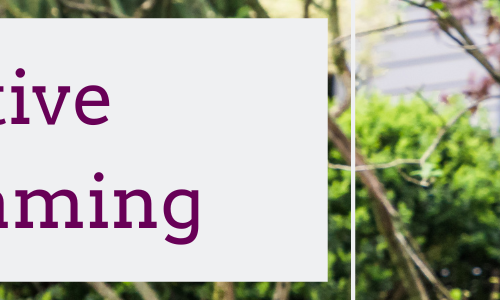
HOW TO TEACH CHILDREN TO DO THE HARD THINGS
The other day I was with in a home session with a small being and his family. I asked a simple question, “Do you usually eat dessert after dinner?” This little boy’s expression turned south – fast!
He quickly looked down at his hands. He paused and said “ummm,” he looked at his mother for the answer and began to tear up.
I repeated the question. Tears began to fall. I was so confused. How did we end up in tears when I asked about dessert?
Being a behavior therapist, I knew I had to keep going with this question until an answer came. Most big beings would stop asking, especially when the tears fell. After about nine minutes, he answered, “Um, well, sometimes, I think.”
I was thrilled, he answered and so I said, “Thank you for answering.” Then I asked, “Are you not sure what I am asking?” He said, “Yes, I am only allowed to have dessert some nights, so I don’t know if I usually eat it.” Wow, I thought, that was such a great answer, I’m so glad I waited for it!
We then went on to figure out that what I meant was different than what he thought I meant. We confirmed his answer his mom. Simultaneously, I made a plan to teach him how to answer without tears.
This is not a unique situation. Actually, I think the fear of answering came up in two other homes last week during my sessions.
There are two parts to this reaction: the emotions and the behavior.
This small being thinks that when questions are hard, “If I wait long enough, then I won’t have to answer.”
Change this pattern in your small being! This question was only hard because he decided it was hard. Truth is, he already knew the answer.
Behaviorally, push your small being through the tough moments. They can do it and need the practice doing the hard things! What a significant life lesson it is and you have the opportunity to teach them this every day.
Provide them with fewer answers and give less support. Let them feel how hard it is and that they must do it anyway! When they get to the other side, they will get to feel the excitement and pride of doing something hard. That is how you create brave, thoughtful and daring small beings.
The other piece is the emotions. All the fear, anxiety or confusion (I am hesitant to label it since I don’t actually know what the exact emotion was) were true for that small being in that moment. However, the magnitude did not fit the situation. Sitting in his kitchen, talking about dessert at 4pm should not cause terror. The way I taught him to connect to a feeling of safety in answering hard questions was by giving him the experience of answering them. Once he did it, then give him all the support and encouragement he needs. Before your small beings answers, you have to let him feel all those big feelings. Show him that you know he will be okay and can do it. Your emotional state will effect his!
Teach your small beings to do hard things in everyday situations and it will be easier for them to do hard things when the stakes are high. (Tweet) Start now.
Ideas into Action!
Take one moment each day for the next week and don’t answer for your small being, wait for their answer. See what happens and how it changes you both!
Leave your feedback, experience and thoughts in the comment section below this post or email directly info@BehaviorAndBeyond.net with your behavior insights!
Support comes from the people in your life who care. If a special person in your life can use this information, then please consider forwarding this blog to them.
With a little help we can all grow. Keep checking in weekly for more parenting insights at Behavior + Beyond.
For personal insights that I only share with my email list, please join my confidential email list below.



